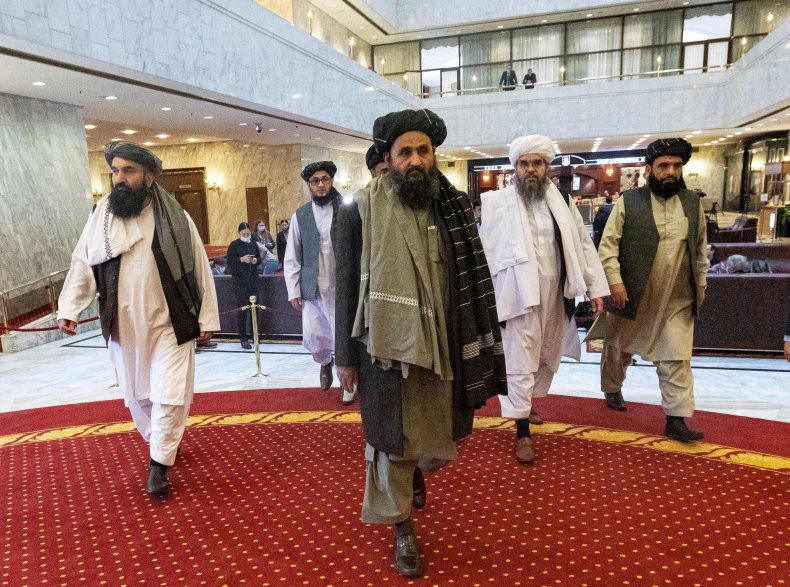BY JULIA MARNIN
The Taliban said "it's too early" to determine whether insurgents would attack withdrawing U.S. forces, which are scheduled to fully depart Afghanistan before September 11 following a decision by President Joe Biden, according to the Associated Press.
The Taliban signed a deal with former President Donald Trump in 2020 that set a U.S. troops withdrawal date from Afghanistan of May 1, 2021, but the military pullout date was extended by Biden.
"It's too early for these issues, nothing can be said about the future," Taliban spokesman Mohammad Naeem told AP when asked about the possibility of violence from insurgents.
Pentagon Press Secretary John F. Kirby emphasized during a press conference last Friday that the withdrawal of troops will begin May 1 and be completed by September 11, saying, "We've seen their threats, and it would be imprudent for us not to take those threats seriously. It would also be imprudent for the Taliban to not take seriously what [President Joe Biden and Secretary of Defense Lloyd J. Austin III] both made clear: Any attack on our drawdown, on our forces or our allies and partners...will be met very forcefully."
For more reporting from the Associated Press, see below.
 Taliban co-founder Mullah Abdul Ghani Baradar (center) and other members of the Taliban delegation arrive to attend an international conference on Afghanistan over the peaceful solution to the conflict in Moscow on March 18, 2021.
Taliban co-founder Mullah Abdul Ghani Baradar (center) and other members of the Taliban delegation arrive to attend an international conference on Afghanistan over the peaceful solution to the conflict in Moscow on March 18, 2021.The U.S. military has begun shipping equipment and winding down contracts with local service providers ahead of the May 1 start of the final phase of its military pullout from Afghanistan, a U.S. Defense Department official said Thursday.
The pullout under Biden marks the end of America's longest war after a 20-year military engagement. Currently, some 2,500 U.S. soldiers and about 7,000 allied forces are still in Afghanistan.
In February last year, the U.S. military began closing its smaller bases.
Since then, the military has been shipping equipment and winding down local contracts for services such as trash pickup and maintenance work, the U.S. official told AP, speaking on condition of anonymity in line with briefing regulations.
While preparations are underway, troops likely won't begin to depart for a few weeks, he said, adding that "we won't see a coming down of the (troop) numbers" until remaining bases close.
There have been indications that the pullout could be completed well before Sept. 11, which marks the 20th anniversary of the al-Qaida terror attack on the U.S. and the trigger for the U.S. invasion of Afghanistan.
On Wednesday, Germany's Defense Ministry said discussions are underway among military planners with the NATO-led Resolute Support Mission in Kabul for a possible withdrawal of international troops from Afghanistan as early as July 4.
In the short term, America will likely increase its troop presence in Afghanistan, the Pentagon said last Friday. The additional troops would be in Afghanistan over the coming weeks and months to help with the herculean task of wrapping up 20 years of war.
While much of the equipment headed back to the U.S. will be shipped by air, the military will also use land routes through Pakistan and north through Central Asia, the Defense Department official said.
The U.S. equipment that is neither shipped back to America nor given to the Afghan National Security forces will be sold to contractors, who will, in turn, sell it in the local markets.
"You'll most likely start seeing it eventually showing up in bazaars as scrap," said the official.
No comments:
Post a Comment